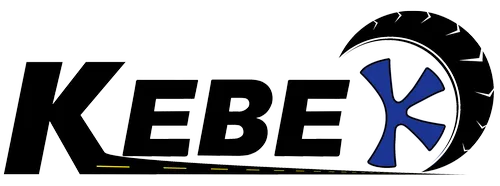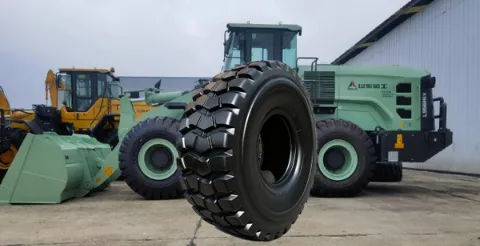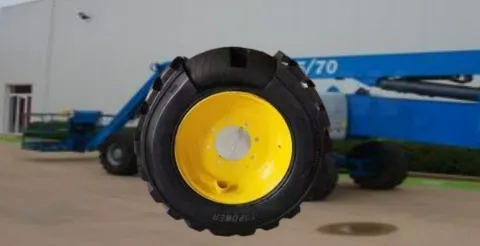Solid industrial tires made by rubber will be the best solution for material handling lifts like forklift , scissor lift and boom lift
in the fast-paced world of warehouses, distribution centers, and manufacturing plants, every second counts. Material handling equipment like forklifts, lifts , pallet jacks, and reach trucks are the lifeblood of your operation. When they stop moving, productivity grinds to a halt. One of the most common and disruptive causes of downtime is tire failure—specifically, flat tires.
For operations where punctures, cuts, and constant wear are a daily reality, air-filled pneumatic tires are a liability. The solution? Solid Rubber Tires will be the solution.
Engineered for relentless performance, Kebek Rubber solid tires are the definitive choice for businesses that prioritize uptime, safety, and total cost-of-ownership. This guide will explore why making the switch to solid industrial tires is a strategic investment in your operation’s efficiency.
Why Choose Rubber Solid Tires? The Case for Unbreakable Performance
Rubber solid tires are exactly what the name implies: they are constructed from a solid, homogeneous block of robust rubber compound, eliminating the air cavity entirely. This simple yet revolutionary design delivers profound benefits for material handling:
1. 100% Puncture-Proof & Flat-Free Operation
This is the single biggest advantage. Whether you’re handling metal scrap, lumber, construction debris, or operating in a facility with stray nails and sharp objects, punctures are impossible. Rubber solid tires render tire-related downtime a thing of the past, ensuring your equipment stays on the floor and productive.
2. Maximum Uptime and Reduced Total Cost of Ownership
While the initial investment in a rubber solid tire may be higher than a pneumatic one, the long-term savings are significant. You completely eliminate the costs associated with:
- Tire repair services and patches.
- Replacement tires due to irreparable punctures.
- Production delays and missed deadlines from immobilized equipment.
This translates to a lower cost-per-hour of operation and predictable maintenance budgeting. Rubber Solid Free of troubles will save cost for you in long terms
3. Enhanced Stability and Load-Bearing Capacity
Without air, there is no risk of a wobbling or bulging sidewall under heavy loads. Rubber solid tires provide exceptional stability, which is crucial for lifting heavy pallets to significant heights. The solid construction offers consistent support, increasing operator confidence and safety when handling expensive or delicate goods.
4. Minimal Maintenance Requirements
Forget daily pressure checks. Solid tires require no inflation, which removes a routine maintenance task and prevents the performance issues and uneven wear that come from under-inflated pneumatic tires.
rubber solid Tires: Engineered for oem
Not all solid tires are created equal. Kebek rubber solid tires leverages advanced compounding and precision engineering to deliver a product that outperforms the competition.
- Advanced Rubber Compounds: Our tires are formulated from a unique blend of polymers that resist wear, abrasion, and cracking. This results in a longer service life, even on the most abrasive concrete floors.
- Excellent Shock Absorption: A common misconception is that solid tires offer a harsh ride. Kebek tires are engineered with specific elastomers that provide superior cushioning compared to standard solid tires, reducing operator fatigue and protecting the vehicle’s mechanics.
- Non-Marking Options: For environments like food & beverage, pharmaceuticals, or clean rooms, we offer non-marking solid tire variants. These are made with special compounds that leave no black scuff marks on your floors, helping you maintain strict hygiene and cleanliness standards.
Key Applications: Where rubber Solid Tires Shine
If your operation falls into any of these categories, solid tires are not just an option—they are a necessity:
- Waste & Recycling Facilities: Constant exposure to sharp metals and debris makes solid tires the only viable choice.
- Construction Supply Yards: Handling lumber, rebar, and other construction materials poses a constant puncture risk.
- Steel and Metal Fabrication: Metal shavings and scrap are a tire’s worst enemy.
- Ports and Intermodal Yards: The harsh, unpredictable environment demands absolute reliability.
- Any High-Volume Warehouse: Where the cost of even a 30-minute downtime for a flat tire is too high.
Making the Switch: What to Consider
Transitioning from pneumatic or cushion tires to solid industrial tires is straightforward. The key consideration is ensuring the correct size and load capacity for your specific forklift model. The Kebek technical team is ready to assist you in selecting the perfect tire to match your equipment and operational demands.
Conclusion: Invest in Productivity, Not Repairs
In the relentless environment of modern material handling, reliability is the ultimate currency. By choosing Kebek rubber solid industrial tires, you are doing more than just buying a component—you are investing in uninterrupted workflow, enhanced safety, and long-term operational savings.
Stop managing tire problems and start maximizing productivity. Choose Kebek rubber solid tires—engineered for the toughest challenges on your floor.




